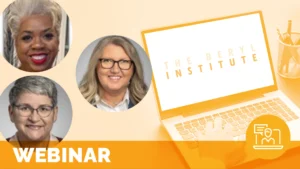My Life, My Story: Putting the Person Above the Problem

My Life, My Story (MLMS) is a VA-wide program that enhances patient-centered care by integrating Veteran life stories into the medical record, impacting the Veteran, the interviewer, and front-line staff. The webinar will explore a MLMS project focused on Veterans with spinal cord injuries with a brief overview of various forms of life-story work, such as narrative medicine, dignity therapy, and narrative therapy. Components that have been successfully implemented over the past five years and established a successful and sustainable program will be reviewed. We will share reflections from the experience and share survey and published results from previous MLMS contributors and recipients.
Susan Nathan, MD | Palliative Care Physician, VA Boston Healthcare System
Maggi A Budd, PhD, MPH, ABPP | Rehabilitation Neuropsychologist, VA Boston SCI/D
Isabella Channell, B.S. | Boston VA Healthcare System Psychology Practicum Student and Master’s Candidate in Mental Health Counseling and Behavioral Medicine at Boston University School of Medicine
Related content
-
 Patient Family & Community Engagement | Quality & Clinical Excellence
Patient Family & Community Engagement | Quality & Clinical ExcellenceOur Journey to Improving the Experience of Patients 65+
Join us for a panel discussion on enhancing patient experience for patients 65 and older. Experts will explore key population statistics, care challenges, and insights from consumer feedback to better understand patient needs. Learn strategies to improve communication clarity and address What Matters Most at every stage of care. Panelists will share lessons from a
Learn more -
 Patient Family & Community Engagement
Patient Family & Community EngagementVoices From the Journey: Exploring Rehabilitation Experience of Individuals with Disabilities in a South African Province
Background: Globally, 16% of the population is affected by disabilities, with increasing prevalence due to non-communicable diseases and longer lifespans. This group often faces shorter lifespans, poorer health, and greater challenges than non-disabled peers. Rehabilitation services are essential for improving independence, health, and quality of life by facilitating participation in education, work, and social roles. However,
Learn more -
 Patient Family & Community Engagement
Patient Family & Community EngagementPX Chat on PFA/PFACS: Revitalizing/Rebuilding (October 1, 2025)
12pm ET / 11am CT / 10am MT / 9am PT – Join The Beryl Institute community for an opportunity to connect with your peers on the support and resources needed to address efforts around revitalizing and rebuilding PFAs and PFACs in their organizations. Breakout discussion groups allow you to share your challenges, celebrate your
Learn more
